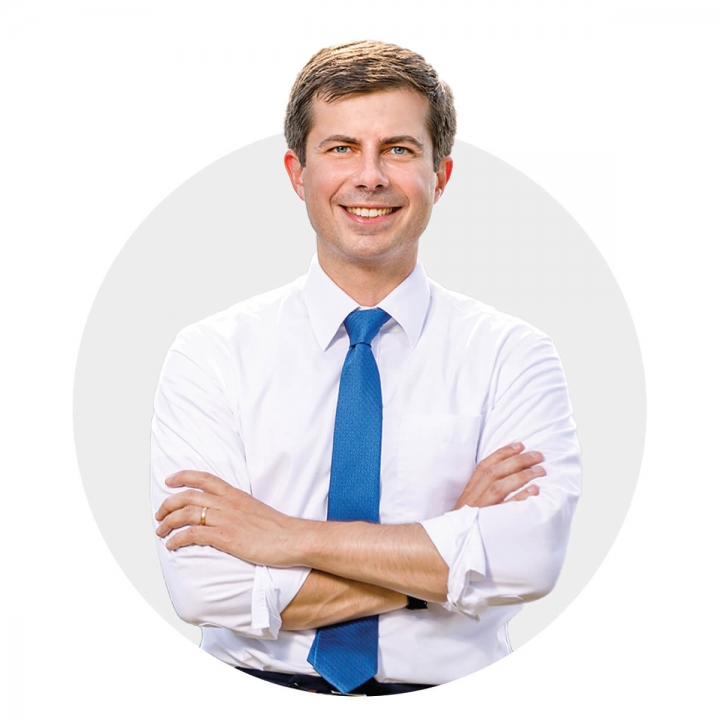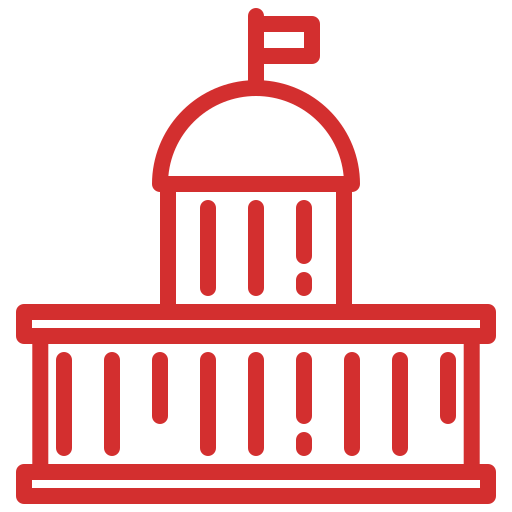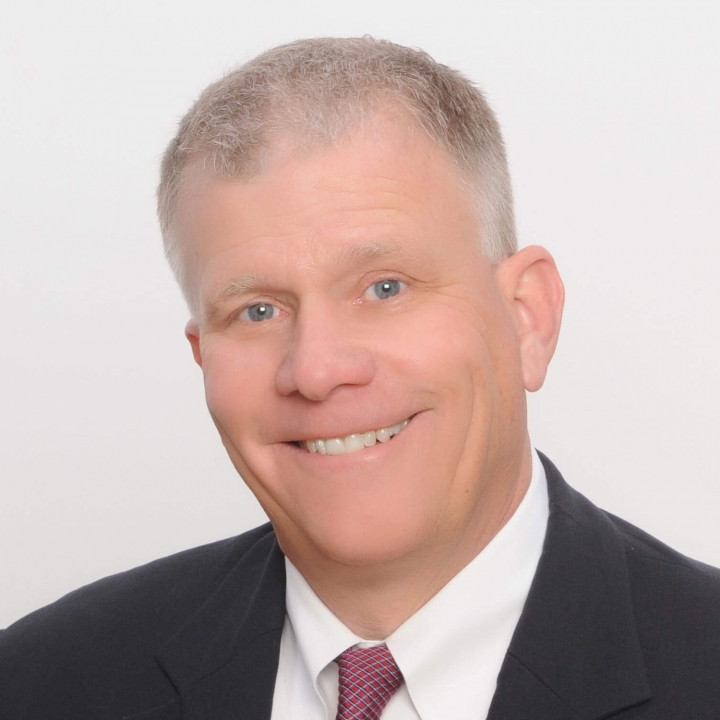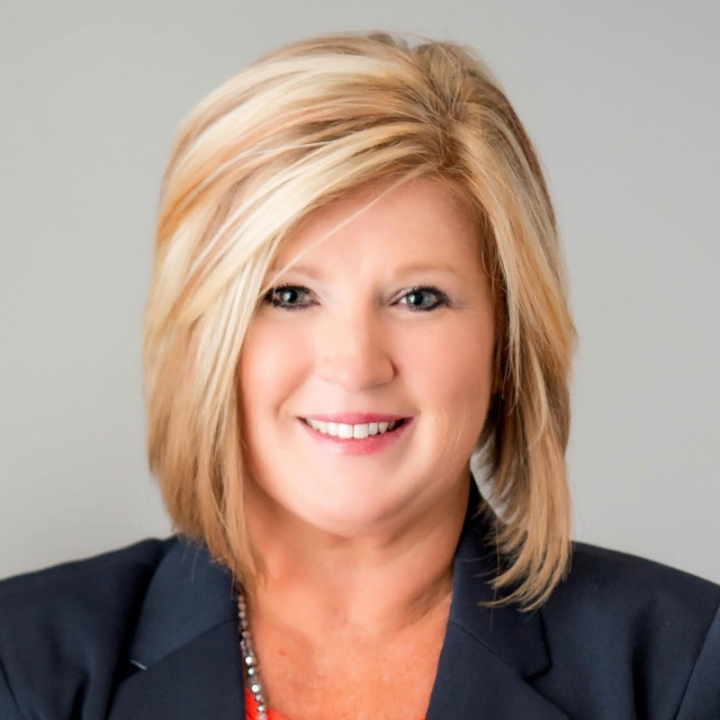
Pete Buttigieg
The mayor of South Bend, Indiana, the “millennial” of the Presidential race, has introduced plans to address the overdose crisis that demonstrate an embrace of harm reduction strategies, a nuanced understanding of the drivers of the current drug crisis, and an awareness of the dangers of viewing a “substance use disorder epidemic” as the “opioid crisis,” rather than a poly-substance phenomenon leading to unprecedented levels of overdose deaths. Further, Buttigieg recognizes the overdose crisis as part of a greater context, acknowledging its place in the family of things: a larger mental health care crisis, the deaths of despair, and as he describes in his policy plan to address addiction and mental health, “the longest sustained decline in American life expectancy since World War I” that is attributable to suicide, alcohol-related deaths, and overdose death via methamphetamine or cocaine. In the aforementioned policy proposal, “Healing and Belonging in America: A Plan to Improve Mental Health Care and Combat Addiction,” Buttegig proposes one of the most thorough approaches (second perhaps only to Beto O’Rourke’s plan), a pathway towards addressing these deaths of despair through systems change, expansion of syringe exchange and naloxone programs, and universalizing access to medications used to treat opioid-use disorder.
Pete Buttigieg on Criminal Justice Reform
Buttigieg pledges to end cash bail.
Buttigieg plans to eliminate private prisons.
Buttigieg wants to eliminate mandatory minimum sentences.
Buttigieg pledges to commute the sentences of people who are incarcerated in the federal system by establishing an independent clemency commission outside the Department of Justice.
Buttigieg would abolish capital punishment.
Buttigieg would work to eliminate arrests and incarceration as punishment for failing to pay legal financial obligations, require states to account for a person’s ability to pay before levying fines and fees, and end practices that create additional economic burdens, such as suspending driver’s licenses for failing to pay criminal justice debts.
Read More
What Pete Buttigieg Has and Hasn’t Done About Homelessness in South Bend
The New Yorker, June 19, 2019 | Charles Bethea
The Full Plan – Healing and Belonging in America: A Plan to Improve Mental Health Care and Combat Addiction
August 23, 2019
Pete Buttigieg on Overdose Prevention Sites
Buttigieg would ensure that federal funds are available for safe injection site pilot programs, and would not allow states’ safe injection sites to be impeded by federal law enforcement policies.
Read More
Becoming Whole: A New Era for LGBTQ+ Americans
Pete Buttigieg, 2019
Pete Buttigieg on HIV Getting to Zero
Buttigieg would "revitalize" the Office of National AIDS Policy, which works to reduce and spread awareness of the HIV/AIDS epidemic across the U.S. (Since January 2017, President Trump has failed to appoint a new director of ONAP after its previous director, Amy Lansky, left that month. Several other staff members have resigned.
Buttigieg does not support universal health care, and says he instead, would "strengthen the Affordable Care Act."
Buttigieg would re-establish the White House Office of National AIDS Policy.
Buttigieg would expand access to HIV testing in clinical and non-clinical settings and would fully fund the Ryan White HIV/AIDS program.
Buttigieg would pursue aggressive price negotiations against any pharmaceutical companies refusing to sell PrEP at an affordable rate. If this failed, he would “consider” exercising eminent domain on PrEP-related patents.
Buttigieg would guarantee funding to expand access to condoms and HIV prevention programs.
Buttigieg would guarantee funding to expand access to condoms and HIV prevention programs.
Buttigieg would expand funding for programs like PEPFAR and the Global Fund which prioritize vulnerable populations in its effort to prevent HIV/AIDS transmission.
Buttigieg’s ONAP strategy would restore civil rights protections for those with HIV in health care settings, "address the stigma" for those who face challenges in obtaining preventative and general care for HIV, and provide access to PrEP for those determined "at risk" by ensuring that all costs are covered by insurance plans. Alternatively, if this fails, his administration would "take over" drug company patents and lower prices.
Buttiegieg promises to “end the HIV/AIDS epidemic” by 2030.
Buttigieg, in his first six months in office, would update the National HIV/AIDS strategy to ensure that undetectable means untransmittable and would ensure universal access to PrEP.
Buttigieg promises to ensure access to PrEP for everyone who needs it through his Medicare for All Who Want It plan. He would require all insurance plans to cover PrEP and related screening and monitoring services without cost sharing and would provide federal funding to ensure access to PrEP drugs and related services for those who are un- or underinsured.
Buttigeig would commit to restoring funding for domestic HIV/AIDS research.
Buttigieg would decriminalize HIV transmission, and would restore the Affordable Care Act’s civil rights protections to everyone at risk for HIV.
Buttigieg would decriminalize HIV transmission, and would restore the Affordable Care Act’s civil rights protections to everyone at risk for HIV.
“We cannot think about ending the AIDS epidemic without addressing directly the substance use disorder (SUD) epidemic in the United States. While opioids have fueled the immediate epidemic of overdose deaths and new HIV infections as a result of needle sharing, we should treat this as a SUD epidemic — whether through opioids, fentanyl or methamphetamine. The HIV outbreak in Scott County, IN was just the tip of the iceberg in terms of communities at risk. I saw at close range the price that is paid by not having comprehensive harm reduction and SUD treatment services.”
2020 Presidential Candidate Questionnaire
AIDS United, 2019 | Pete Buttigieg
Read More
Every 2020 Democratic Candidate’s Plan to End the HIV/AIDS Epidemic
Lifehacker, September 11, 2019
Josh Ocampo
Four Things an HIV Policy Survey Reveals About 2020 Candidates’ Harm Reduction Positions
Filter, September 10, 2019
2020 Presidential Candidate Questionnaire
AIDS United | Pete Buttigieg
Becoming Whole: A New Era for LGBTQ+ Americans
Pete Buttigieg, 2019
Pete Buttigieg on Hepatitis C Treatment Access
Buttegieg has not issued specific statements on this issue beyond the quoted comments from the 2019 AIDS United questionnaire, which support ensuring hepatitis C treatment through broader adoption of Medicaid expansion.
“Access to comprehensive health care services that includes … treatment for hepatitis C by assuring broader adoption of Medicaid expansion and through existing networks of safety-net providers.”
2020 Presidential Candidate Questionnaire
AIDS United, 2019 | Pete Buttigieg
Read More
2020 Presidential Candidate Questionnaire
AIDS United, 2019 | Pete Buttigieg
Pete Buttigieg on Voting Rights Restoration
Buttigieg supports the restoration of voting rights for felons upon release from prison.
Buttigieg does not believe prisoners should have the right to vote while incarcerated.
“I do believe that…when you have served your sentence, then part of being restored to society is that you are part of the political life of this nation again. And one of the things that needs to be restored is your right to vote. As you know, some states and communities do it, some don’t. I think we’d be a better country if everybody did it. Frankly, I think the motivations for preventing that kind of re-enfranchisement, in some cases, have to do with one side of the aisle noticing that they politically benefit from that. And that’s got some racial layers too.”
Presidential Town Hall with Mayor Pete Buttigieg
CNN, April 22, 2019 | Anderson Cooper
Read More
Pete Buttigieg Says Incarcerated People Shouldn’t Get to Vote
Gq.com, April 23, 2019 | Luke Darry
Pete Buttigieg on Drug Decriminalization
Buttigieg’s “Healing and Belonging in America” plan emphasizes the need to divert people who use drugs away from prisons and into treatment. He intends to accomplish this by expanding diversionary programs and evidence-based training “for drug courts, mental health courts, and other alternatives to incarceration for justice-involved persons.”
The goal of Buttegieg’s proposed decriminalization and diversion model is to reduce “the number of people incarcerated due to mental illness or substance use by 75 percent in the first term.”
Buttigieg supports marijuana legalization, and will expunge past marijuana convictions.
Buttegieg will eliminate incarceration for drug possession at the federal level.
Buttegieg plans to reduce sentences for all other drug offenses, and apply these reductions retroactively.
“To ensure that people with a mental illness or substance use disorder can heal, we will decriminalize these conditions.”
HEALING AND BELONGING IN AMERICA: A Plan to Improve Mental Health Care and Combat Addiction
Buttigieg campaign website, 2019
Read More
Buttigieg Pledges To Decriminalize Possession Of All Drugs In First Term As President
Marijuana Moment | August 23, 2019 | Kyle Jaeger
HEALING AND BELONGING IN AMERICA: A Plan to Improve Mental Health Care and Combat Addiction
Buttigieg campaign website, 2019
Pete Buttigieg on Substance Use Treatment Access
Buttigieg’s plan would deregulate buprenorphine at the federal level, while increasing the number of clinicians able to prescribe medication-assisted treatment (MAT).
Buttigieg plans to standardize addiction treatment by defining the elements of care provided throughout the continuum of care using national guidelines.
Buttigieg will incentivize states to increase Medicaid reimbursement rates that clinicians receive for providing MAT.
Buttigieg promises to prioritize research to develop medication to treat other types of drug dependence disorders.
Buttigieg’s substance use proposal specifically provides $10 billion to local communities via an annual grant program. Healing and Belonging grants would fund policies and programs focused on prevention, care integration, and community. The plan specifically includes funding to expand the peer support workforce.
Buttigieg would require all insurers to cover all three types of MAT to treat opioid addiction.
Buttigieg pledges to end policies that require patients to wait days or weeks to receive access to MAT by getting rid of prior authorization.
Buttigieg plans to increase mobile clinics and access to longer-lasting forms of MAT for patients in rural or medically underserved areas
Buttigieg will invest $100 billion dollars through a 10-year grant program to assist communities most impacted by addiction.
“For years, politicians in Washington have claimed to prioritize mental health care while slashing funding for treatment and ignoring America’s growing addiction and mental health crisis. That neglect must end. Our plan breaks down the barriers around mental health and builds up a sense of belonging that will help millions of suffering Americans heal.”
Democrat Buttigieg wants to save million lives through plan fighting mental health, addiction
Reuters, August 23, 2019 | Tim Reid
Read More
Buttigieg Unveils Plan to Improve Mental Health Care and Fight Addiction
CBS News | August 23, 2019 | Jack Turman
I Spent a Decade Addicted to Opioids, Here’s why Pete Buttigieg’s Plan Gives Me HopeThe Hill
September 15, 2019 | Ryan Hampton
Pete Buttigieg on Syringe Access
Buttegieg states, in response to a policy questionnaire sent to his campaign by AIDS United, that he would remove legislative and regulatory restrictions on the use of federal funds for syringe service programs.
“Among the key steps to addressing this joint epidemic are: community based substance use prevention programs that address the social and community determinants of SUD, appropriate monitoring of prescribing practices of clinicians, employing a full range of harm reduction services, including removing restrictions on the use of federal funds for syringe services programs, broad availability of naloxone for overdose reversal — including distribution to users through syringe services programs and community availability on the same level as Automated External Defibrillators (AEDs), access to comprehensive health care services from SUD disorder treatment that includes MAT and treatment for hepatitis C by assuring broader adoption of Medicaid expansion and through existing networks of safety-net providers, and a recognition that we also need to more broadly invest in social support services that should surround MAT, akin to the services available for people living with HIV under the Ryan White program.”
“To expand harm reduction services we will remove legislative and regulatory restrictions on the use of federal funds for syringe service programs. Under current law, local authorities have to jump through too many hoops to use federal dollars for operation of SSPs and may not use these funds for the purchase of syringes. These restrictions hamper state and local responses, both because they limit resources and because they convey a negative message about the value of these programs, despite overwhelming scientific evidence that they can prevent transmission of HIV and hepatitis. The Centers for Disease Control and Prevention (CDC) would also work with states to remove any criminal liability for those participating in SSPs.”
Read More
2020 Presidential Candidate Questionnaire
AIDS United
Pete Buttigieg
The Full Plan – Healing and Belonging in America: A Plan to Improve Mental Health Care and Combat Addiction
August 23, 2019
Four Things an HIV Policy Survey Reveals About 2020 Candidates’ Harm Reduction Positions
Filter Magazine, September 10, 2019
Pete Buttigieg on Naloxone
Buttigieg plans to expand access to naloxone, but his plan does not recognize the overwhelming current reality of naloxone access in the U.S.: All evidence suggests that naloxone is only successful when put into the hands of people who use drugs - paramedics, bystanders, and first responders reverse only a small fraction of overdoses. While some states currently use federal funding to purchase naloxone, many states have restricted this naloxone purchased with federal funds. In short, the funding rarely makes its way to communities where it is needed.
“Expand take-home naloxone programs to all 50 states by 2024 and advance the implementation of harm reduction services to reduce overdose deaths and the spread of infectious diseases related to needle sharing. Harm reduction programs are a critical part of any effective response to the opioid and injection drug use crisis. They minimize the negative impact of drug use without encouraging it, while reducing other side effects of drug use. In particular, this means access to syringe service programs for people who inject drugs, that link them to treatment, and provides access to sterile syringes. These programs help prevent transmission of HIV, viral hepatitis, and other infectious diseases associated with needle sharing, and reduce overdoses by deploying medication such as naloxone that help reverse the effects of opioids.”
“To expand harm reduction services, we will Make naloxone, a drug that can be administered by any individual, broadly available in order to reverse overdoses. This includes expanding federal support for the purchase of naloxone by state and local health departments, assuring it is widely available in public spaces and workplaces in a similar way (and in conjunction with) first aid kits and Automated External Defibrillators (AEDs), and encouraging co-prescribing of naloxone with opioids, either by individual physicians or direct dispensing by pharmacists.”











